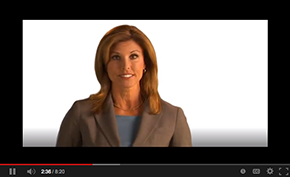Because clients, employers, and the public rely on the work of actuaries, actuaries must hold themselves to high standards of conduct.
This is especially important to remember in times of economic and financial stress when actuaries may find themselves under pressure to produce results that principals think they want and need. At such times, it is a good idea to keep Precept 1 of the Code of Professional Conduct firmly in mind.
Precept 1 of the Code lays the foundation upon which the rest of the Precepts that describe the structure of actuarial professionalism are built: “An Actuary shall act honestly, with integrity and competence, and in a manner to fulfill the profession’s responsibility to the public and to uphold the reputation of the actuarial profession.”
One could reasonably argue that Precept 1 is the most comprehensive Precept in the Code of Professional Conduct. And that is because Precept 1 not only embodies the actuarial profession’s commitment to earning the public’s trust, it also promotes a shared understanding of what professionalism means when practicing in a profession grounded in trust, integrity, and candor.
Precept 1 requires the actuary to act with integrity and competence. This fundamental obligation underlies the entire Code and calls upon the actuary to provide principals with honest, skillful, and careful service. Precept 1 entitles principals, regulators, the general public, and members of other professions to expect a high degree of ethical conduct from actuaries and calls on the individual actuary to continually demonstrate honesty, integrity, and competence as the essential threads in the actuary’s professional fabric.
Obviously, that means an actuary must not intentionally misstate liability calculations, deliberately understate trend assumptions, or fraudulently overcharge clients. But simply refraining from such obvious behavior is not enough. Precept 1 also has an ethical component that implies that the credentialed actuary should be trustworthy, loyal, fair, open, and sincere.
Precept 1 requires actuaries not only to understand right from wrong, but also to act on that understanding in all they do, including in their work.
The public expects that credentialed actuaries providing actuarial services will do so with skill and care. Acting with skill and care includes practicing within the specific framework that derives from the actuary’s basic education, experience, skills, and expertise. As a Committee on Professional Responsibility discussion paper puts it, “An actuary who follows generally accepted actuarial principles and practices and applies due care and reasoned professional judgment to reach an honest and unbiased opinion satisfies the requirements of Precept 1 regardless of whether subsequent events develop in a different way. It is the integrity, skill, and care that the actuary brings to the work, and not the outcome, that demonstrates compliance with Precept 1.”1
Precept 1 further obligates the credentialed actuary to uphold the reputation of the actuarial profession by not committing any act that reflects adversely on the actuarial profession. A noteworthy aspect of Precept 1—and what separates it from the other Precepts—is that it applies to all conduct, not just conduct related to the provision of actuarial services.
In other words, for Precept 1 to apply, the conduct does not have to occur during the actual exercise of professional skill for a principal, nor need the conduct raise general doubts about the actuary’s grasp of those skills. For example, in 2018, the Academy expelled an actuary after he was found guilty by a jury of tax fraud and obstruction of justice in a federal court. In another example from 2018, the Academy expelled an actuary after he pleaded guilty to charges of securities fraud and conspiracy to commit securities fraud in connection with an insider trading scheme. In both cases, the actuaries’ conduct was found to reflect adversely on the standing of the actuarial profession in the eyes of the public and indicated a lack of the high degree of trustworthiness the public expects from an actuary.
To perform their professional duties effectively, actuaries must enjoy the trust and confidence of the public. Precept 1 implies that the public’s trust in the actuarial profession is built on three things: honesty, integrity, and competence. Never is this trust needed more than in this time of global uncertainty. This trust—and the standing and reputation of the actuarial profession—depends on the judgment and conduct of each individual actuary, and the rigor with which actuaries bring honesty, integrity, and competence to their actions.
Footnotes
1 The Actuary’s Relationships with Users of a Work Product, Committee on Professional Responsibility Discussion Paper, 2003, p. 3.




